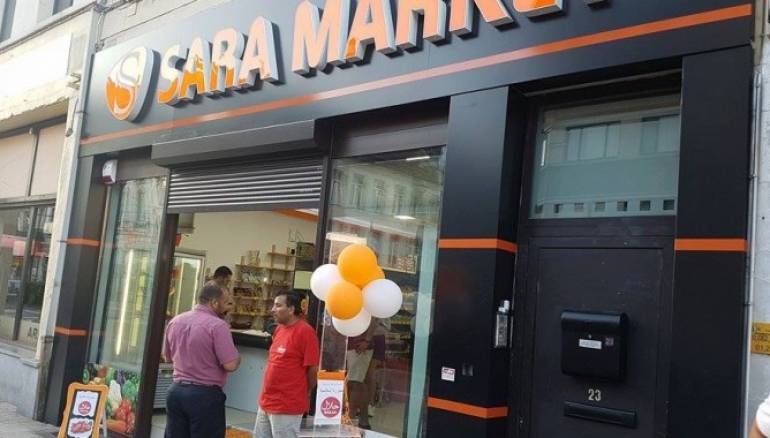Syrian pharmacist Rachid al-Saied and his brothers lost two large hospitals in eastern Deir-ez-Zor province after regime forces destroyed the facilities following the outbreak of the revolution. Saied owned the largest share in the hospitals, but losing them did not result in a loss of ambition.
After he sought asylum in Belgium, Saied established an economic project by opening a large supermarket on a thoroughfare in Antwerp on Gememente Straat, located close to a major train station.
Speaking to Iqtissad, Saied said that the late regime commander Juma Juma sent the brothers threats to destroy the two hospitals and all those inside. The Political Security forces arrested his brother Nuri, the hospital director, in August 2011. Not long after the arrest the Al-Nour Hospital was bombed. It was an easy target for the regime forces due to its height.
In 2013, after hiding from the regime intelligence in the countryside of Deir-ez-Zor, Saied traveled to Turkey. After more than a year and a half, and after spending all his money, at the end of 2014 he managed to reach Belgium, where he lived for two years on welfare provided by the state.
According to Saied, he decided to open the market because there was no Syrian supermarket in the city and he did not want to sit around without work. Most of the other local supermarkets are run by Iraqis, North Africans and Turks, while there are only some small Syrian shops, so Saied wanted to make his mark in the city and serve his fellow Syrians at the same time.
The city municipality offered its services to help establish the business, pledging to reduce the price of billboards and advertising to half the usual price if paid regularly. Saied added that the municipal employees were very pleased that he started the project.
He said that some of his friends — who are doctors — offered him financial support to establish any project he had in mind. After due consideration, he saw that the best investment would be to open a supermarket for Syrians and Arabs in the city, which he opened with the help of one of his brothers.
He says that the store does not only cater for Syrians, explaining that he chose to import bread from France to attract Belgian and foreign customers as well.
According to Saied, the vast majority of refugees in Antwerp live on Belgian state aid and do not have jobs due to difficulties in learning the language and their lack of integration. Only a small proportion of them in addition to older migrants own businesses in the city.
This article was edited by The Syrian Observer. Responsibility for the information and views set out in this article lies entirely with the author.


